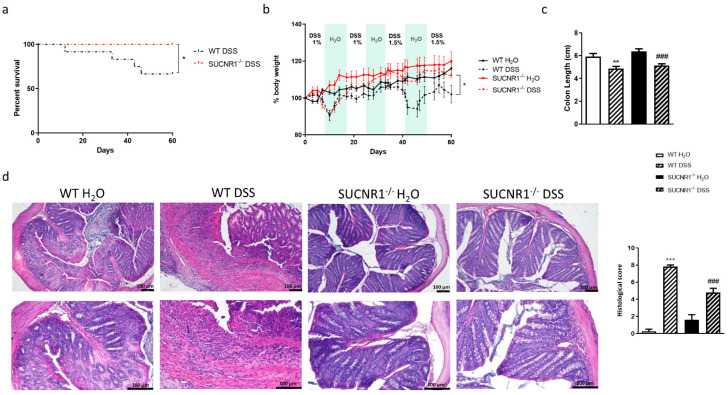Figure 3.
Lack of SUCNR1 ameliorates chronic DSS-chronic colitis. Chronic intestinal colitis was induced in vivo in WT and SUCNR1−/− mice with four cycles of increasing percentage of DSS (1%, 1%, 1.5% and 1.5%) in drinking water over 7 days, intercalated with 10 days of water. At the end of the last cycle, on day 60, mice were euthanized and colon tissue samples were collected. (a) Graph shows the survival percentage in mice after the four cycles of DSS (n = 10). (b) Graph shows the evolution of body weight (n = 10). (c) Graph shows the colon length of mice (n = 10). (d) Hematoxylin-Eosin staining performed on intestinal resections of WT and SUCNR1−/− mice and representative pictures of each group are shown (n = 10). Histological score to assess the integrity of the epithelium and the degree of infiltration also performed following Obermeier et al. parameters Bars in graphs represent mean ± SEM. * p < 0.05, ** p < 0.01 and *** p < 0.001 vs. WT H2O mice. ### p < 0.0001 vs. WT DSS-treated mice.

